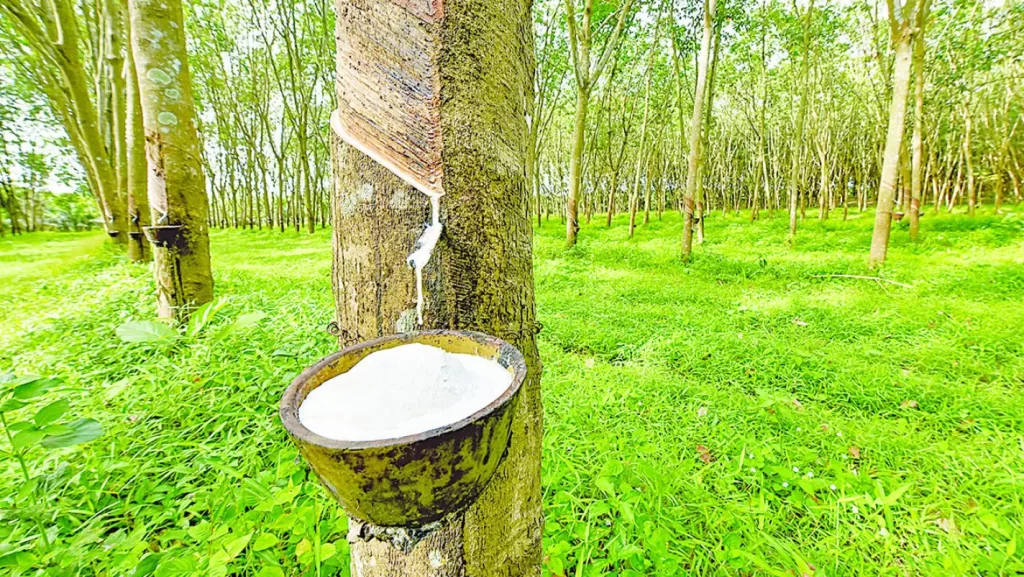
Chairman of the National Rubber Producers, Processors, and Marketers Association of Nigeria (NARPPMAN) in Cross River State, Rev. Inameti Umoh, has called on all levels of government in Nigeria and international development assistance agencies to deliberately fund rubber tree cultivation for the purpose of conserving the ecosystem.
He particularly called on authorities in the Niger Delta region of the country to extend funding for the cause, as planting rubber trees will contribute to biodiversity conservation, restoration of sustainable, climate-smart, and inclusive agriculture.
This call was made during Cross River State Rubber Week with the theme “The Place of Rubber in Regeneration of Degraded Land for Restoration of Ecosystems.”
He stressed that the time to invest in the cultivation of rubber trees is now.
He stated that rubber tree cultivation reduces the carbon footprint.
“The natural rubber tree converts greenhouse gases to a hydrocarbon. It is also capable of delivering it in commercially viable quantities almost on a daily basis, unlike any other plant such as cocoa and palm trees. In addition, it returns some carbohydrates produced over a 30-year period as medium-density hardwood.
“This natural process of the biosynthesis of two products not only sustains the farmer but also reduces the impact on global warming to some extent due to carbon dioxide extraction. Preserving existing rubber plantations and cultivating more, especially on marginal lands, will help to mitigate an imbalance created due to the production of excessive quantities of greenhouse gases.”
Inameti went on to enumerate other benefits of growing rubber trees, saying apart from giving 14 million metric tons of natural rubber (NR) consumed annually worldwide, the tree can extract 24.9 km of carbon dioxide (CO2) greenhouse gas to produce one.
“The uniqueness of the rubber tree is its ability to fix CO2 almost instantaneously into a hydrocarbon on a daily basis, with water and energy from sunlight, while nature took millions of years converting biomass to hydrocarbon and petroleum.”
According to Inameti, the rubber tree is a natural solar panel that traps sun energy and propagates chemical reactions.
Inameti said that a rubber farmer does silent service by extracting latex used to manufacture assorted rubber-based items.
He went on to say that each rubber tree has the uncanny ability to function as a tap, working 150 days a year to clean up the environment unlike other plant-based options.
